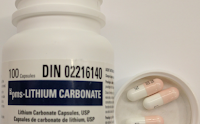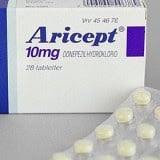DIAGNOSIS NEWS: Nearly all participants with mild memory problems who scored well on two 5-minute screening tests — measuring cognition and the ability to identify odors — had an extra-low risk of developing Alzheimer’s. The tests may offer an accurate way to distinguish between people at risk for Alzheimer’s versus those with ordinary age-related memory decline who don’t need extra testing for dementia.
Clinicians use cognitive tests to screen patients for dementia, but they aren’t always able to predict which patients with mild cognitive impairment will develop Alzheimer’s disease.
Another test, which measures ability to identify odors, is also used to identify dementia, and this test can be abnormal in both Alzheimer’s and other forms of dementia.
Without a definitive screening test to predict which patients with mild cognitive problems will develop Alzheimer’s disease, many individuals often undergo difficult and expensive diagnostic workups.
Unnecessary Tests are Cumbersome
“No one has looked previously at whether performing well on both the odor identification test and global cognitive performance tests is better at predicting a low risk of cognitive decline or development of Alzheimer’s disease,” says D. P. Devanand, MBBS, MD, lead author of the paper, professor of psychiatry (in Neurology and in the Gertrude H. Sergievsky Center) at Columbia University Vagelos College of Physicians and Surgeons, and Research Psychiatrist at the New York State Psychiatric Institute. “If we could accurately identify individuals who are unlikely to experience cognitive decline and Alzheimer’s disease, we would reduce the need for unnecessary diagnostic investigation with PET imaging and lumbar puncture, which can be cumbersome and expensive, and improve selection of patients for clinical trials, including possibly prevention trials.”
What the Researchers Did and What the Study Found
The researchers analyzed data from 749 older adults with mild cognitive impairment without dementia in an urban community who completed a brief cognitive screening test and a 40-item smell identification test, which includes a shorter 12-item test. The participants were then followed for an average of 4 years to see if any were later diagnosed with Alzheimer’s or other dementias.
During the follow-up period, 109 of the participants developed dementia, and the vast majority of them received a diagnosis of Alzheimer’s disease.
The researchers found that nearly all (96.5%) of the participants who performed well on both tests failed to develop dementia during the period studied. Among those with good scores on these tests, no one aged 70-75 or 81-83 years was found to transition to dementia during the study period.
“These findings address the novel and unique aim of the present study, and suggest that for older adults up to their mid-80s who are unimpaired on both a brief odor identification test and a brief global cognitive test, transition to dementia in the next few years is very unlikely and further investigative evaluation for dementia typically is not needed,” adds Devanand.
These findings corroborate evidence from a previous, separate clinical cohort of 144 patients with mild cognitive impairment who were followed for 3 years. In that study, no participant under the age of 70 with high UPSIT scores (longer odor identification test compared to the BSIT) was found to transition to dementia.
Further research in primary care is needed to confirm and evaluate the practical applicability of these findings that were obtained in a community cohort.
REFERENCE:
- The study is titled “Intact global cognitive and olfactory ability predicts lack of transition to dementia”, and was published October 29, 2019 in Alzheimer’s & Dementia: The Journal of the Alzheimer’s Association.
- Additional authors, all from Columbia University Irving Medical Center, are Seonjoo Lee, Jose A. Luchsinger, Howard Andrews, Terry Goldberg, Edward D. Huey, Nicole Schupf, Jennifer Manly, Yaakov Stern, William C. Kreisl, and Richard Mayeux.
SUPPORT:
- This work was supported by the following grants from the National Institute on Aging of the National Institutes of Health (P01AG07232, R01AG041795, R01AG057898, R01AG058767).











